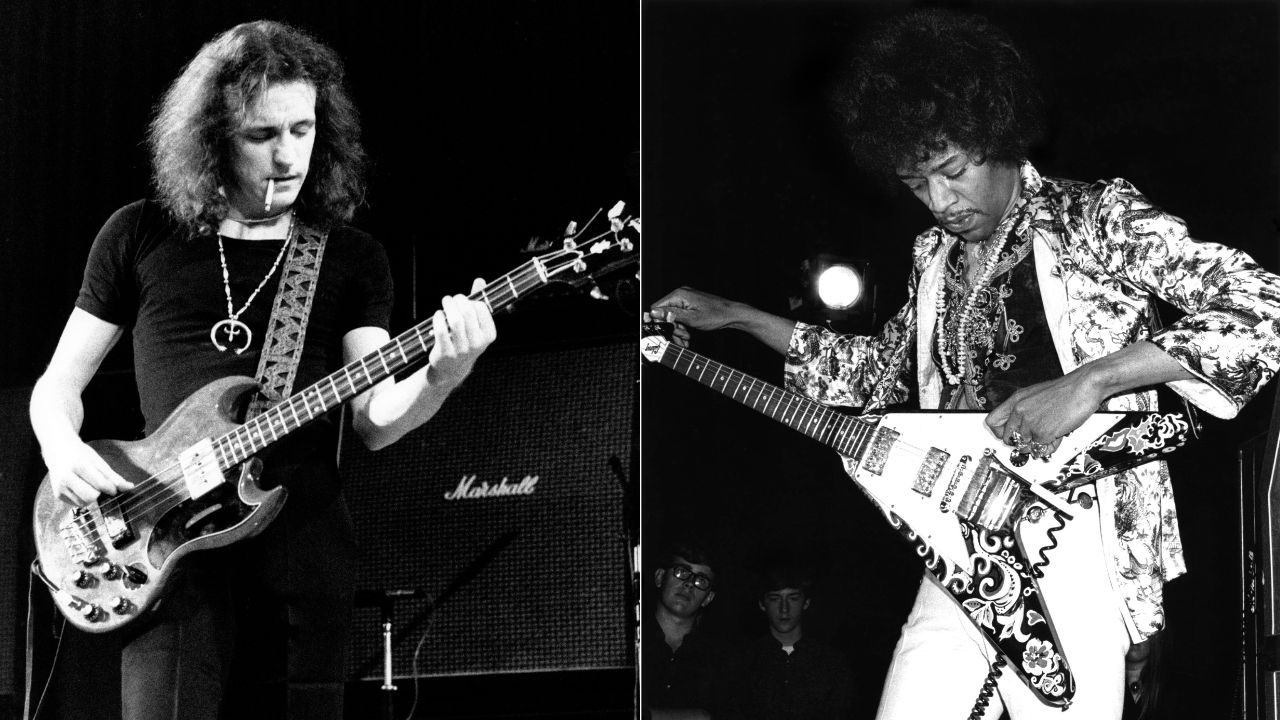“This guy came up to me and said, ‘Hi, I’m Jimi Hendrix, can I sit in with your band?’ I said, ‘Well, I dunno – let’s go and find out’”: In June 1968, Jack Bruce came close to forming a band with Jimi Hendrix
Speaking in 2003, the late Cream bassist Jack Bruce recalled his first encounters with Jimi Hendrix

For many years a double bass player influenced more by jazz and classical music than rock, Jack Bruce brought an acute melodic awareness to the bass guitar from the moment he picked one up.
Classically trained at Scotland’s Royal Academy of Music, Bruce had been playing upright in London jazz clubs – but also listening to James Jamerson and “striving to play melodies … while maintaining the bass’ function as an anchor.”
He found the perfect vehicle for his vision of the instrument’s expanded role in Cream, where he could create basslines that linked the jazz-inspired drumming of Ginger Baker with the blues-inflected guitar of Eric Clapton.
Speaking to journalist Jim Clash in 2015, Bruce recalled his first encounters with Clapton. “Eric was so obviously ahead of everybody else at that time, with his approach and his knowledge of the blues. He was also very fashion conscious.”
“Because of that, we started the hairstyles and flared trousers. I remember Eric saying after we met Jimi Hendrix that one of us had to have that kind of afro. I said, ‘It ain’t going to be me, mate.’ So Eric got the perm. Things happened in that band by default.”
Although the internal dynamic of Cream made for some of the greatest musical moments of the 1960s, Jimi Hendrix was ready to put the scene on red alert. Speaking to Bass Player in 2003, Bruce recalled the moment he first brought Hendrix on stage.
“We’d heard of him through a friend who had claimed to have seen him play in New York. Cream was playing at – I think – St. Martin’s School Of Art, and I was having a pre-gig pint. This guy came up and said, ‘Hi, I’m Jimi Hendrix, can I sit in with your band?’ And I said, ‘Well, I dunno, let’s go and find out.’
All the latest guitar news, interviews, lessons, reviews, deals and more, direct to your inbox!
“So we went across the road and Eric was very keen for him to play and Ginger, of course, was completely against it. But he did play, and he blew us all away, playing with his teeth and all that. Eric was stunned. There’s a demo that we did the next day, and you can hear Eric trying to emulate some of that stuff.”
Bruce also talked with Hendrix about forming a band together. “That was actually going to happen. Jimi was all for having a play. At that point he was trying to find a new direction, musically, and that could easily have been it. I was all for it because I think one of the problems Jimi had was that he didn’t play with people who kicked him up the arse, basically.
“I’m not knocking Mitch Mitchell, but to me he was like a British jazz player, he was kind of laid-back. He played a lot of rhythms but I don’t think it pushed Jimi in the way that we would have.”
After Cream split in late 1968, Bruce went on to release a string of solo albums which demonstrated his trademark blend of jazz, rock and blues influences.

Nick Wells was the Editor of Bass Guitar magazine from 2009 to 2011, before making strides into the world of Artist Relations with Sheldon Dingwall and Dingwall Guitars. He's also the producer of bass-centric documentaries, Walking the Changes and Beneath the Bassline, as well as Production Manager and Artist Liaison for ScottsBassLessons. In his free time, you'll find him jumping around his bedroom to Kool & The Gang while hammering the life out of his P-Bass.
